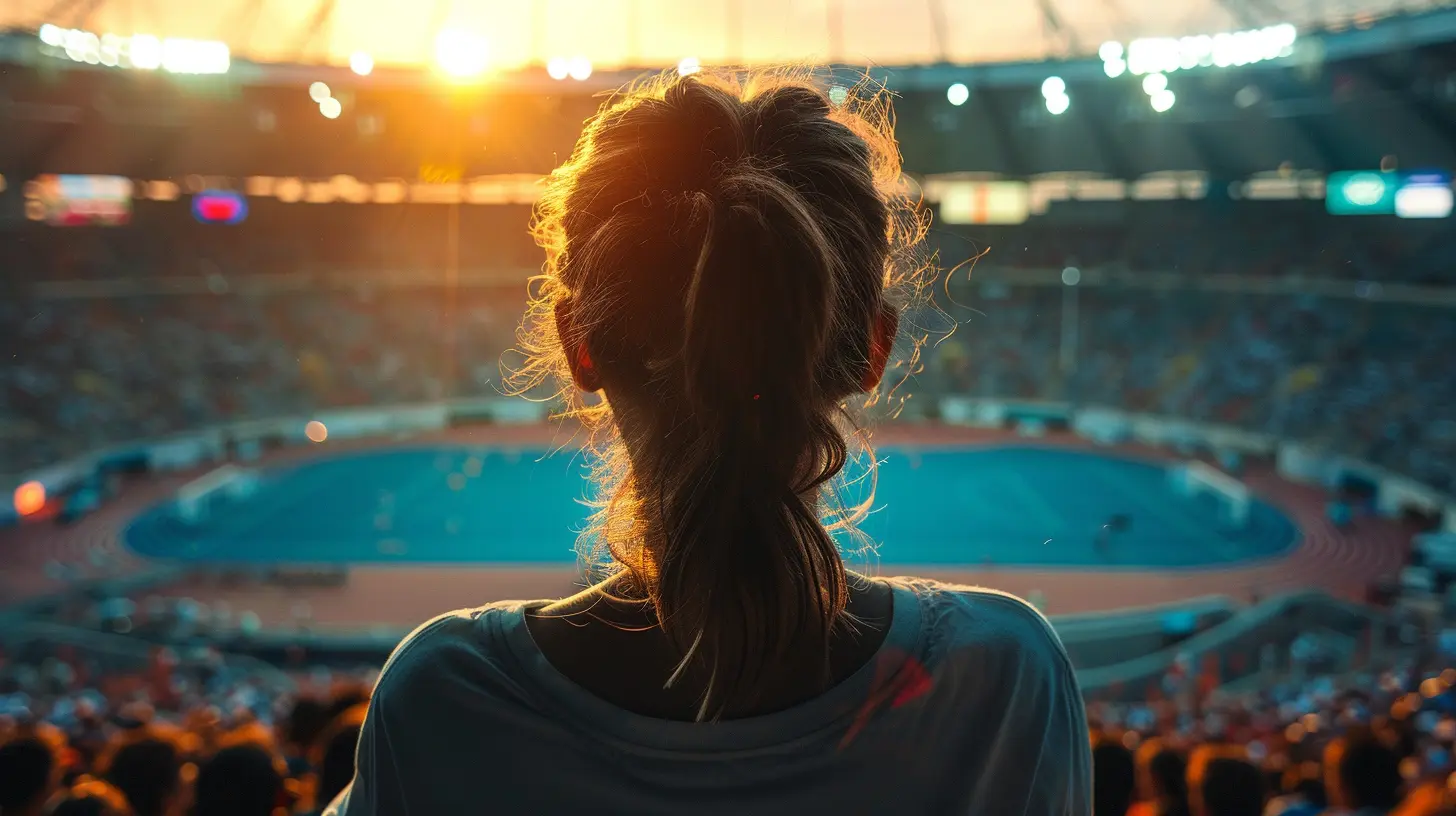The Role of Mental Health in Olympic Success
15 September 2025
When we think about Olympic athletes, what usually comes to mind? Superhuman strength, blazing speed, perfect technique, and years of grueling training, right? But here’s the kicker—none of those things mean much without one critical piece of the puzzle: mental health. You can have all the physical tools in the world, but if your mind isn’t in the game, good luck getting on that podium.
Mental health in sports isn't just a trendy topic—it’s a fundamental aspect of athletic performance, especially at the Olympic level. In this article, we’re diving deep into why mental health plays such a huge role in Olympic success. Trust me, by the end of this, you'll never look at gold medals the same way again.
What Exactly Is Mental Health in Sports?
Before we go further, let’s get on the same page. Mental health in sports refers to an athlete's emotional, psychological, and social well-being. It impacts how they handle stress, relate to teammates or coaches, and make game-time decisions.Now, here’s the thing: being in peak mental shape isn't just about avoiding depression or anxiety (though that's crucial). It's also about building resilience, managing pressure, staying focused, and bouncing back from setbacks. Sounds just like what an Olympian needs, right?
The Olympic Pressure Cooker 🔥
Imagine training your whole life for one moment. Your country’s watching. The world’s watching. And you've got just seconds to make it count. Talk about pressure!That’s the Olympic experience in a nutshell. Athletes often deal with:
- Sky-high expectations
- Public scrutiny
- Fear of failure
- Injury recoveries
- Loneliness from long training camps
Even just qualifying for the Olympics is mentally exhausting. And when the stakes are this high, mental toughness isn’t optional—it’s essential.
The Turning Point: Athletes Speaking Up
For a long time, mental health was the elephant in the locker room. But that started to change thanks to some brave athletes using their platforms to speak out.Simone Biles – The Defining Moment
Let’s talk about Simone Biles for a sec. In the Tokyo 2020 Olympics (held in 2021), she shocked the world by pulling out of multiple events. Not because of an injury, but because of mental health.“I have to focus on my mental health,” she said. That moment sent ripples through the sports world. Some clapped, others questioned. But most importantly, it opened the door for honest conversation.
Michael Phelps – More Than Medals
The most decorated Olympian in history, Michael Phelps, has openly shared his battles with depression and suicidal thoughts. Despite his 23 gold medals, he hit rock bottom multiple times.He’s now a massive advocate for mental health support in sports. His message? Even champions struggle. And that’s okay.
Training the Brain Like a Muscle 🧠💪
So how do athletes build mental toughness? The same way they build physical strength—through training.Yep, mental conditioning is a real thing. And it’s gaining popularity across elite sports. Here’s how it looks:
Sports Psychologists Are the New MVPs
Olympic teams now include sports psychologists to help athletes manage nerves, improve focus, and overcome mental blocks. Think of them as mental coaches, helping athletes visualize success and stay emotionally balanced.Visualization and Mindfulness
You’ve probably heard about athletes “seeing” themselves win before actually doing it. That’s visualization in action. Add in mindfulness techniques like meditation and controlled breathing, and you’ve got tools that keep anxiety at bay and performance on point.Journaling, Goal Setting, and Routine
Keeping a mental training routine is just as important as sticking to a gym schedule. Journaling, setting short-term goals, and maintaining a solid routine help athletes stay mentally clear and focused.Breaking the Stigma: Why It Matters
In the past, admitting to mental struggles was seen as weakness. In sports? Unforgivable. But not anymore. The narrative is changing, and we're all better for it.Vulnerability Equals Strength
Athletes like Naomi Osaka and Kevin Love (though not Olympians, they’re key voices) have shown that vulnerability is actually a sign of strength. When Olympic athletes speak up, they normalize the conversation for everyone—young athletes, weekend warriors, even fans watching at home.Better Performance, Longer Careers
When athletes prioritize mental health, they perform better and stick around longer. Burnout is real. So is anxiety. Managing it keeps them in the game—literally.The Role of Teams, Coaches, and Organizations
Olympic success doesn’t happen in a vacuum. Teams and coaches play a huge role in shaping the mental environment.Supportive Coaching Culture
Coaches who understand and value mental health build trust. When athletes feel safe, they’re more likely to open up and work through issues before they spiral.Building Resilient Teams
Mental health isn’t just individual—it’s collective. Teams that support each other emotionally are stronger, more unified, and better equipped to handle setbacks.Organizational Backing
Olympic committees and national sports organizations hold major power. When they invest in mental health resources, it sends a powerful message: Your well-being matters more than your medal count.Mental Health Challenges Athletes Face
Let’s not sugarcoat it—Olympic athletes face some pretty serious mental health hurdles.Perfectionism
When “good” isn’t enough and “great” is expected, perfectionism can take a toll. It can lead to self-doubt, burnout, or even eating disorders.Injuries and Recovery
Injuries don’t just hurt physically—they mess with your head. Fear of re-injury, loss of identity, and isolation during recovery can trigger depression.Post-Olympic Depression
You’d think winning a medal brings lifelong joy. And sometimes it does. But for many athletes, the high of competition fades fast, leaving them feeling lost or empty once the Games are over.Building a Mental Health Strategy for Olympic Success
If we want our athletes to thrive, not just survive, we need a game plan. One that includes:1. Proactive Mental Health Screening
Checking in before there's a breakdown. Early intervention can save careers, and even lives.2. Full-Time Mental Health Staff
Just like physical therapists travel with the team, mental health professionals should too.3. Peer Support Programs
Talking to someone who’s been there makes all the difference. Peer mentors help athletes feel less alone.4. Flexible Competition Schedules
Burnout happens when we push too hard for too long. Giving athletes breaks between events helps preserve mental energy.The Gold Medal Mindset 🏅
At the end of the day, Olympic success isn't just about who runs the fastest or jumps the highest. It’s about who can control their thoughts, manage pressure, and thrive in the most intense environment on Earth.Mental health is the backbone of Olympic greatness. Ignore it, and even the most gifted athlete can crumble. Embrace it, and greatness follows.
So next time you cheer for your favorite Olympian, remember: behind that powerful body is a powerful mind. And both need training, care, and respect.
Final Thoughts
Olympic athletes inspire us not just because they’re fast, strong, or agile—but because they push human limits. Today, we recognize that those limits include emotional and mental boundaries, too.Mental health isn’t a soft skill—it’s a winning edge. And as we continue to prioritize it, we’re building a healthier, more resilient generation of athletes.
Let’s keep the conversation going. The more we talk about it, the closer we get to a world where mental wellness is celebrated, not stigmatized—in sports and beyond.
all images in this post were generated using AI tools
Category:
OlympicsAuthor:

Easton Simmons
Discussion
rate this article
1 comments
Quade McFarlane
Mental health is crucial for Olympic athletes. It impacts focus, resilience, and performance. Acknowledging its importance can help break stigma and foster a healthier, more supportive environment in sports.
October 3, 2025 at 10:43 AM

Easton Simmons
Absolutely! Prioritizing mental health is essential for athletes' overall performance and well-being. Acknowledging this can lead to a more supportive and understanding sports culture.


